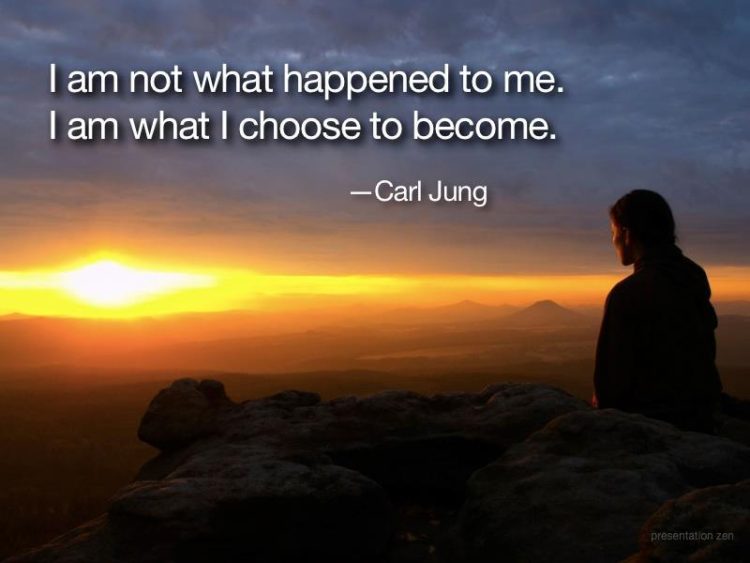I, like thousands of others, have struggled for years every time someone looks at me and tells me how I am ‘so lucky’ when I tell them I had a stroke. The instantaneous feeling of being judged or compared in their own minds because I may look healthy; yet they know nothing about me or what I am ‘so lucky’ to deal with every day.
However, being the stubborn person I still am; I decided I needed to dig further as to why exactly I struggle to bite my tongue and not get into how I don’t feel oh ‘so lucky’ when someone says this. Afterall, I guess I should feel lucky, shouldn’t I? I did survive, I did ‘escape’ death. Or did I? I escaped death to live every day feeling trapped inside my own body; most times inside my own head. This feeling of being trapped without explanation, without answers from the medical community, without the ability to even plan the most basic things most individuals take for granted like what they will do or what they will need to get done that day.
So that is where I decided to start. SURVIVE. The word survive comes from the Latin word vivere, meaning “to live,” and it gave us the root “viv.” All words from this Latin word, vivere, relate to something to do with living. For example, to “revive” something means that you bring it back to life or if something is “vivacious,” it is referenced as being full of life and energetic. Even a story can be “vivid” meaning it appears to be full of life and fresh. But other than the fact that it references ‘living,’ I definitely didn’t feel satisfied with my findings yet. I felt as though it only supported those telling me this because what they are seeing at that particular moment probably looked ‘alive, or vivacious, or even full of life.’
Then I saw it. The “medical” reference; which is what, of course, family, friends, and even strangers are referencing when they are telling me how I am lucky to have “survived.” It means ‘to live after an event or trauma’ to continue to ‘exist.’
I felt I was on a path; I continued to dig. Why exactly do so many stroke survivors, not feel ‘so lucky?’ Well, it continues to get a little more logical; afterall, lucky or luck, comes from the polish origin – a polish noun – that ironically can mean to bring either good OR ill (luck) to a person. Most of us associate luck or being lucky to a positive outcome; like winning the lottery. But all of us have also heard the reference of someone being ‘down on their luck,’ as well. Meaning to have brought ill (luck) to someone.
I was getting closer. I kept looking back on that medical definition and back to where it said, to have survived; looking closer and being drawn back to where it said, ‘to continue to exist.’ EXIST. The latin origin, or verb, ‘exist’ actually uses the example in its definition that says: “to live at an inferior level or under adverse circumstances.” I finally felt as though I had some logic to my frustration. That although yes, it was ‘in my head,’ it definitely was not silly to get upset over. Just like many things my brain has a difficult time now trying to ‘piece together, make sense of, or even multitask’ in order to communicate to others; biting my tongue when someone told me I was ‘so lucky’ to have survived my stroke was now officially NOT one of them. It was completely rational. Completely logical. Completely justified.
Just because from the outside I look okay, and others may not know or understand the aftershocks of my own personal earthquake; I now know that it isn’t just me or the thousands of others that have ‘survived’ a stroke that get upset when someone tells us we are ‘so lucky.’ The whole statement is in fact an oxymoron. And in fact, our brains ARE WORKING, probably even more than average, when they are signally these feelings of frustration and wanting to bite our own tongues. This time, it isn’t us or our brains that are not working. One of those aftershocks of our brains needing to break things down to a more basic level to complete a task at hand; was working beyond what we ever imagined.
There I finally had it: “Lucky to have survived” – the ultimate oxymoron. An oxymoron is in fact the late Greek, self-descriptive word; literally classifying itself as ‘pointed foolishness’ because of its meaning. An ‘oxymoron’ is a word or group of words that contradict themselves. So looking back and my brain having to break it all down. To be ‘so lucky’ to have ‘survived’ or continue to ‘exist’ at an inferior, or lower level of quality of life than what I had previously lived, was indeed ‘lucky’ – the ill luck. And so my brain was indeed frustrated. But it isn’t just my brain that would be frustrated. Thousands, if not millions, of people around the world would be frustrated if someone implied they had positive luck when in fact it was ill luck they experience on a consistent basis or experienced overall. Because to be ‘so lucky’ when the ‘survivor’ has or continues to have ill luck is the ultimate oxymoron. Or as the late Greeks would have said – foolishness.
So if you have experienced ill luck, are a stroke survivor, or anyone for that matter, that consistently deals with an invisible disability to the general public; I hope the next time someone tells you how ‘lucky’ you are, you will remember to smile and have a good chuckle inside instead of feeling frustrated. Or at least know it is NORMAL to feel frustrated; because they are speaking foolishness without realizing it. I know I will.
XX Always,
Jacque
